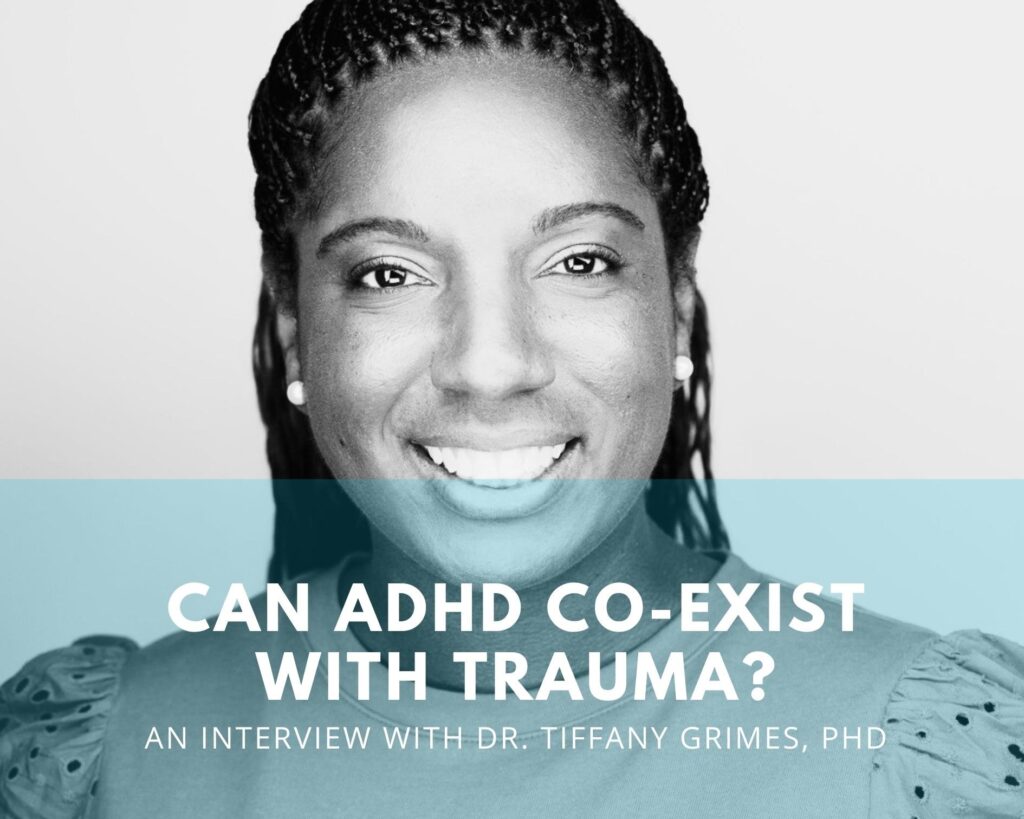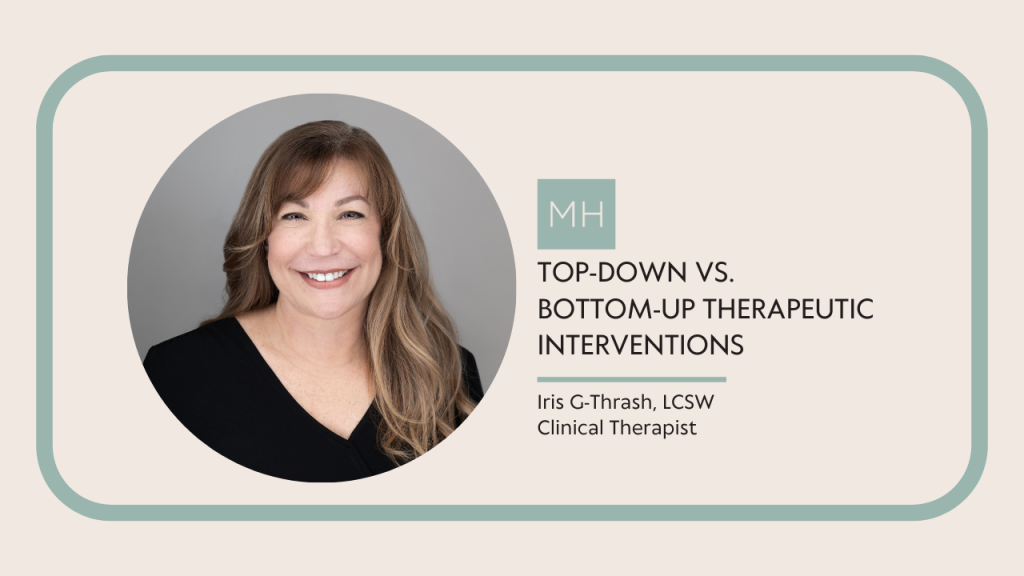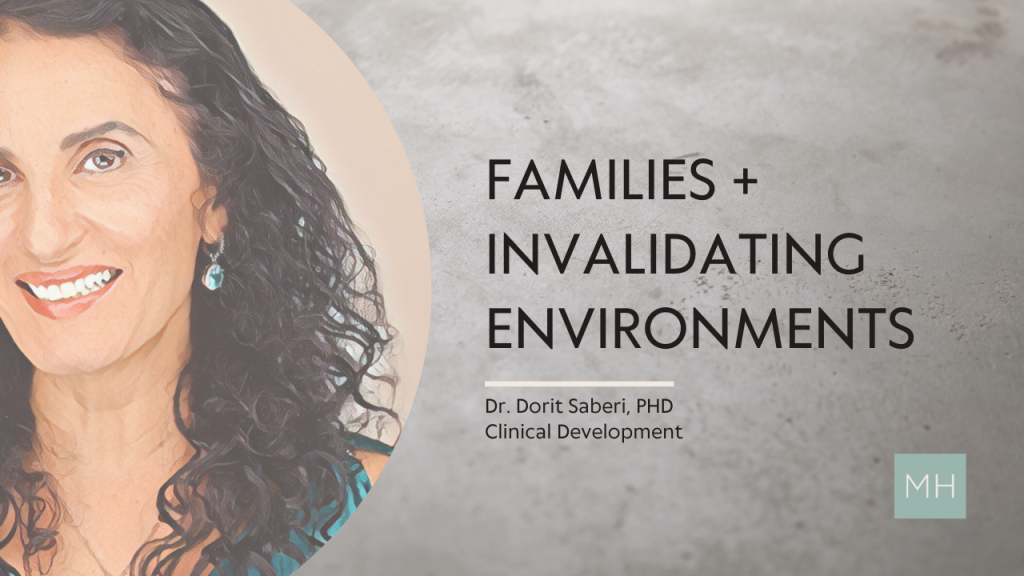ADHD and its relationship with trauma feel like a larger topic of interest in all realms of social interactions lately. So we asked our expert, Dr. Tiffany Grimes, Ph.D., to break down her well-informed clinical thoughts for our pondering readers.
Dr. Grimes, is there a relationship between ADHD and trauma?
Given that ADHD can co-exist with almost any other disorder, it is common that clients will present with comorbid trauma and stress-related disorders, like PTSD, and ADHD. Childhood trauma is often known to trigger ADHD symptoms which can make it even more challenging to differentiate between the two conditions. There is some research indicating that PTSD may also “cause” ADHD, especially in children. Despite having different origins, PTSD and ADHD have many symptoms in common.
Would you be able to list symptoms shared amongst ADHD and trauma?
Inattention
Decreased impulse control
Difficulty with focus
Sleeplessness/Sleep issues
Distractibility
Impulsivity
Irritability
Poor concentration and memory
Anxiety
Sensitivities to sensory stimuli
Mood disorders
Low self-esteem
Propensity to self-medicate
Is it possible to differentiate between signs of ADHD and the signs of trauma?
A thorough holistic biopsychosocial assessment can help differentiate between the signs of ADHD and the signs of trauma. In this assessment, it will be essential to share family history and any potentially traumatic experiences that the client has been a part of, witnessed, or heard about. It may also be helpful to get a second opinion, especially if you feel your provider is not exploring other potential causes for the symptoms you are experiencing. Differentiating between these diagnoses can be challenging and often takes multiple visits over time.
Would experienced trauma intensify symptoms of ADHD?
Clients who are coping with ADHD can expect more challenges around resiliency and may be more impaired than their non-ADHD peers. Not only will trauma often cause ADHD symptoms to worsen, but having ADHD predisposes one to potentially experience heightened responses to traumatic experiences.
Would you say childhood trauma has the potential to cause ADHD?
While the research investigating the overlap between PTSD and ADHD are minimal, there is some evidence that childhood trauma has been linked to “causing\” ADHD and ADHD symptomatology. Although ADHD is typically diagnosed during early childhood, given that it is a brain-based, neurological and developmental disorder, some children may not present with symptoms until later in childhood or their symptoms may go unnoticed even until adulthood. Furthermore, trauma and PTSD rewire and impact a child’s developing brain, which in turn can lead to issues with impulse control, self-awareness, and emotion regulation. However, the inverse is not true-ADHD cannot “cause” PTSD.
From your clinical perspective, is there a link between ADHD and PTSD?
There is certainly a link between ADHD and PTSD. PTSD symptoms are known to exacerbate ADHD symptoms and vice versa. Clients already facing challenges related to their ADHD may also experience more challenges related to resiliency potentially leading them to participate in more negative habits like self-medicating, high-risk behavior, and relational concerns, which in turn may even make them more vulnerable to future traumatic events.
If a reader struggling with ADHD and PTSD is looking for support, what would you like them to keep in mind?
When treating ADHD and trauma/PTSD, it is important to combine therapy with medication. It is also vital to parse out which diagnoses are truly present. While a stimulant medication would potentially be helpful for a client experiencing ADHD, it would be counter-indicated for a client who is only experiencing PTSD, just as a medication prescribed for a mood disorder to treat PTSD would be of little help to a client who is actually only experiencing ADHD. If a client is experiencing both PTSD and ADHD, treating their ADHD will allow them to be more engaged and present for their trauma treatment. Behavioral and mindfulness treatments and approaches may also be effective in improving focus, creating routines, reducing vulnerabilities, and addressing maladaptive thinking and behaviors.
DO YOU HAVE A QUESTION?
Send our team a message or call 888.717.9355


